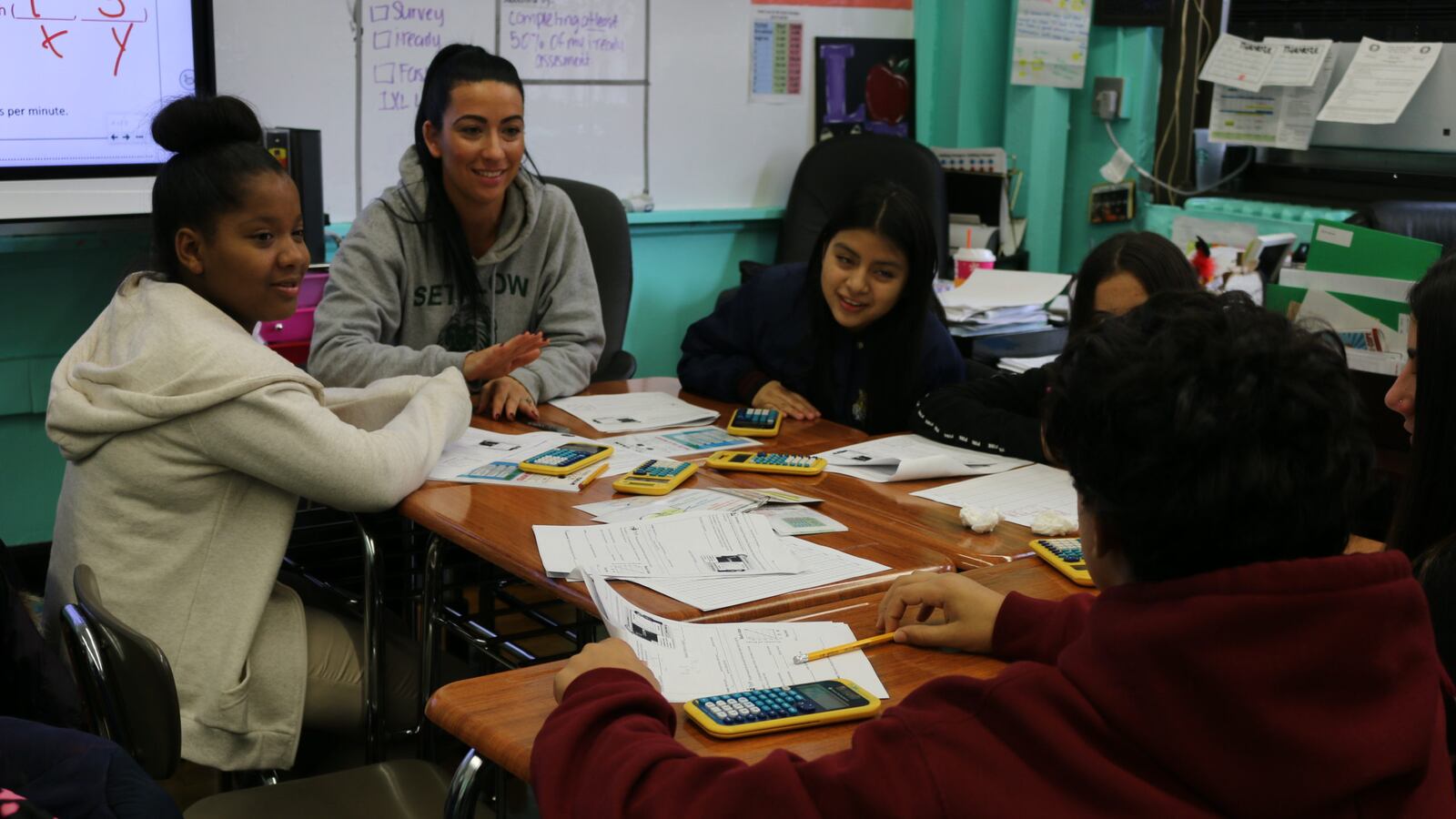New York State loosened a slew of state education requirements Monday, including for special education services and for placing students learning English.
Officials said the changes will allow for some flexibility as state educators navigate an unprecedented rollout of remote learning during the coronavirus pandemic.
Prior to Monday’s announcements, which loosen various timelines, the state had canceled its annual exams. And earlier Monday, Chancellor Betty Rosa said June Regents exit exams will not take place. More details about state graduation requirements and whether August Regents will proceed are expected on Tuesday.
Changes approved Monday take effect Tuesday and will last as long as school buildings are ordered closed. Gov. Andrew Cuomo has extended school and non-essential business closures through April 29.
🔗School accountability
As schools remain shut, state officials won’t use 2019-20 school year data as they review schools and districts. A significant portion of those reviews is based on standardized test and growth scores. Subsequently, schools will retain their current status — if they’re considered “struggling,” for example — for the 2020-21 school year.
In New York City, 124 city schools are currently state-identified as needing varying degrees of improvement.
🔗Special education
State law requires schools to arrange special education programs and services for those who qualify within 60 days of a family agreeing to have their child evaluated. Services provided at a state-approved private school must be arranged within 30 days of officials recommending such a placement. Now, days that school buildings are closed won’t count toward either of those timelines.
The intent of the temporary change is to ease the “extreme difficulty” districts face as they attempt to provide services during school closures, said Christopher Suriano, the state’s assistant commissioner of special education policy.
But there’s concern that students who were identified as needing services right before schools closed could go without services for six months, while their peers evaluated earlier may be receiving remote services, such as counseling and speech therapy, according to Advocates For Children New York.
“Many students with disabilities will likely fall behind during the period of school closure,” wrote Kim Sweet, executive director of Advocates for Children, in a letter Sunday to the Board of Regents. “Stopping the clock on special education service implementation for the entire period of school closure will only set these students back further.”
When asked about Advocates’ letter, Suriano said schools would still be held to federal requirements, which require services to be provided as soon as possible but don’t outline a specific timeline.
Additionally, impartial hearing officers, who preside over special education complaints, will now be allowed to conduct hearings via video conference. That’s a move state officials had sought to implement even before the coronavirus pandemic, as they tried to alleviate the backlog of complaints that have plagued New York City’s special education system.
Preschool providers, meanwhile, have 30 days to make up missed services for students with disabilities, but now, closed school days won’t count toward that.
🔗Students learning English as a new language
Schools are held to certain timelines for identifying students as English language learners, notifying parents, and placing them in the right bilingual or English-as-a-new-language program. For example, once students are identified as English language learners, they must be placed in a program within 10 days of enrolling in school.
Those required timelines are now on pause while schools are closed. Still, schools should be clearly asked to do as much as possible for any new, multilingual students who may enroll while buildings are closed, said Claire Sylvan, founder of Internationals Network for Public Schools, a group of high schools that educates newly arrived immigrant students who are learning English.
“If they’re enrolling new students who are likely to be [English language learners], they should try to evaluate them informally and provide the necessary services as they’re providing to any other student,” Sylvan said.
The state previously announced that state English proficiency exams would no longer be held this year.
🔗Charter schools
Charter schools will be allowed up to a 30-day delay in certain state reporting requirements, which are tied to those schools receiving funding throughout the year.
At multiple times during the school year, charter schools must report enrollment data to the local public school district — for example, the New York City Department of Education – and the state. That includes the number of students at the school and how many students with disabilities the school is serving, as well as the cost of educating those students.
The allowed delay cannot exceed 30 days and will only apply while school buildings are closed. The district will be allowed to delay payments to charter schools if they receive a late report but payment delays cannot exceed 30 days.

